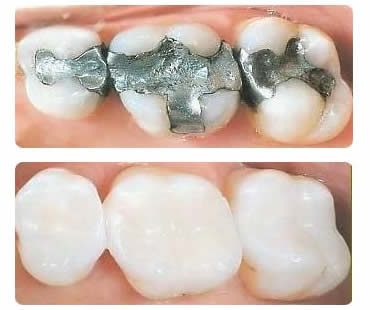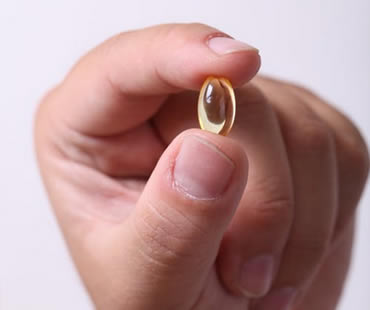
by Dr. Adkins | Dec 4, 2020 | Blog, Dental Topics 1, General Dentistry
At least twice a year, you need to schedule an appointment with your dentist. These visits allow your dentist to assess you oral health, address any concerns you have, and look for signs of problems. Protecting your teeth and gums is a partnership between you and your dentist. For the best results, follow these helpful hints:
Find the right dentist in McDonough
Selecting a provider and dental office that fits your personality will make you more likely to keep your appointments.
Provide an accurate health history
Although your dentist’s primary concern is your mouth, overall wellness can impact your dental health. For example, chronic health issues like diabetes and HIV can increase your risk for gum disease.
Bring a list of current medications
Your dentist needs to know the names and dosages of any medicine you take regularly. Certain medications, such as pain relievers, allergy medicines, and anti-depressants, can cause dry mouth, which may make you susceptible to dental problems.
Report any issues right away
Sometimes, you may develop a toothache or notice bleeding gums between your visits. Don’t ignore these symptoms because they may indicate bigger problems. The longer you wait to address any issues, the more time and money you will lose.
Share your fears
For some people, dental visits cause anxiety or fear. Let your dentist know exactly what worries you. Most doctors want you to feel relaxed and comfortable, so they will take time to answer your questions and help you feel at ease.
If you live in the McDonough area contact us today

by Dr. Adkins | Nov 13, 2020 | Blog, Dental Topics 1, General Dentistry
You’re sitting in your dentist’s chair for your checkup, and you hear the dreaded words that you have a cavity. Is it really a cause for panic? Modern advances in equipment and methods may surprise you about what really happens when you get a filling. Let’s learn what to expect if you need this procedure.
The first thing you and your dentist will discuss is the type of filling that is best for you. One choice is an amalgam filling. It is known for its durability, but contains a small amount of mercury which raises concerns among some patients. Another option is a resin composite filling, which is a newer material that contains more plastics. Many patients like this option because its white color is less noticeable in your mouth, but it lasts only about half as long as an amalgam filling.
The first step of the process is numbing the area, unless the cavity is very small and it’s unnecessary. First, the dentist will rub a topical numbing agent on the area, and will give you an injection after it takes effect. Many patients don’t even feel the injection after the topical numbing.
Next, the dentist will separate the area being worked on from the rest of your mouth using a rubber dam or a bite block. Once your mouth is ready, your tooth will be drilled and the decay will be removed.
The actual filling will be placed after the decay is gone. If you are receiving an amalgam filling, the hole will be filled with the metals. It will be pushed down to ensure all of the space is full, and then any overflow will be removed to make the tooth smooth. If you are getting a composite filling instead, the dentist will put some blue acid in the hole to create small holes for bonding the material. The acid is then rinsed, and a bonding agent is applied. Then the composite material will be added. A blue light will be used to harden and strengthen the material. Finally, the filling will be filed to make it smooth.
Dental fillings dentist in McDonough

by Dr. Adkins | Nov 6, 2020 | Blog, Dental Topics 1, General Dentistry
At one time, metal fillings were the only choice to repair tooth decay. Now, many dentists have switched to composite resin fillings, which match natural-tooth color so they don’t compromise the appearance of your smile. Tooth-colored fillings have gained popularity, and many dentists only offer this option. In recent years, there has been a strong push to eliminate amalgam fillings all together.
Amalgam fillings are made of several metals, with up to a 50 percent composition of mercury. It is widely known that mercury is toxic to the body. Some of the concern about amalgam fillings is the affect mercury has on the body, including:
• Causing damage to the kidneys
• Contributing to infertility
• Impacting the nervous system
• Interfering with the function of the thyroid and pituitary glands
• Posing unknown risk to a fetus
• Weakening the immune system
Because each person is different, you may have no reaction to the amalgam fillings. Over time, though, these restorations may change shape or crack, which can cause them to leak. If the fillings don’t hold up, the area may become susceptible to additional damage or decay.
At your checkup, have the dentist evaluate any old fillings to make sure they are still in good condition. You can also discuss the benefits of replacing amalgams with composite fillings. The newer restorations blend with your natural tooth coloring and require less removal of health tooth structure, which allows for a more conservative repair.
We treat patients from McDonough and the surrounding area

by Dr. Adkins | Oct 16, 2020 | Blog, Dental Topics 1, General Dentistry
Fun in the summer sun can cause unpleasant side effects such as cold sores and fever blisters. Brought on by herpes simplex virus type 1 (HSV-1), cold sores and fever blisters are transmitted from person to person by saliva or by skin contact. With cold sores, you generally develop clusters of tiny blisters on the lip. Most people are exposed to HSV-1 before age 10. After the first infection, the virus remains inactive until stress, illness, or sun exposure causes a new outbreak.
During the first exposure, you may have headache, nausea, fever, and/or vomiting. Patients may also have painful swelling and open mouth sores. Most of the time, cold sores or fever blisters appear on the edges of your lips. Usually, these outbreaks start with tingling or burning followed by swelling or redness. One or more blisters will typically appear within 24 to 48 hours.
Initial symptoms can last for 7 to 14 days. When the cold sores or blisters reappear, they generally crust over in about four days and then heal within 10 days. You may want to visit your doctor or dentist the first time you develop cold sores or fever blisters, but after that, you shouldn’t need medical attention. Keep the area clean and apply topical medication to lessen symptoms as well as promote healing.
Preventing a first infection for loved ones involves making sure that no one with an active fever blister kisses your kids or other family members. Sunscreen can help protect your lips from cold sores brought on by too much time in the sun.
Dentist in McDonough

by Dr. Adkins | Sep 18, 2020 | Blog, Dental Topics 1, General Dentistry
As we age, our teeth and gums change. Proper care of your teeth as well as eating a good diet can keep your smile beautiful and strong. Certain vitamins and minerals also help promote optimal oral health.
As we age, our teeth and gums change. Proper care of your teeth as well as eating a good diet can keep your smile beautiful and strong. Certain vitamins and minerals also help promote optimal oral health.
Vitamin A
Besides aiding with vision, Vitamin A also helps with the development of healthy teeth and gums. As well, Vitamin A contains beta-carotene, which has antioxidant properties. These antioxidants assist in getting rid of free radicals, chemicals that speed up decay in the body.
Vitamin C
Also called ascorbic acid, Vitamin C assists with the absorption of iron, maintains healthy connective tissues, and promotes strong teeth and gum tissue. Because Vitamin C is water-soluble, it is washed out of the body once it has what it needs, people should take in Vitamin C every day.
Vitamin D
Created after exposure to sunlight, Vitamin D encourages calcium absorption as well as helping keep the right levels of calcium and phosphorous in the blood stream. Children need to get enough Vitamin D so that they will develop healthy teeth and bones, so it is often added to milk.
Calcium
No matter your age, every person needs to take in enough calcium because this mineral is crucial in the development and maintenance of teeth and bones. In fact, your jaw bone forms the foundation that houses your teeth.
Getting What You Need
Eating a balanced diet will ensure that your body has the vitamins and minerals needed to keep your smile vibrant for a lifetime. Dairy products like yogurt and cheese as well as vegetables such as broccoli and peas are high in calcium. Have lots of egg yolks, fatty fish, and fortified dairy products when you need Vitamin D. Citrus fruits, melons, berries, and tomatoes offer plenty of Vitamin C, and you can find Vitamin A in dark green or yellow fruits and vegetables, eggs, or low-fat dairy products.

by Dr. Adkins | May 22, 2020 | Blog, Dental Topics 2, General Dentistry
Most of us know we should visit our general dentist every six months for exams and cleanings to ensure optimal oral health, but it seems we find many reasons to avoid those visits. Busy schedules or fear of dental treatments often mean people skip critical routine oral care. However, there are several reasons why you should make regular appointments with your general dentist a priority.
First, routine cleanings by your general dentist will give you a brighter, healthier smile. While brushing and flossing at home are important, it is impossible to remove all of the plaque that accumulates over time. Left untreated, plaque causes decay that leads to cavities and gum disease. Professional cleanings by your general dentist removes plaque and stains, leaving your breath fresher and your smile whiter.
Second, regular examinations allow your dentist to identify potential problems before they become severe. Cavities and gum disease caught early are much simpler to treat, preventing the need for procedures like root canal therapy, crowns, or even tooth extractions. Seeing your general dentist routinely will keep these types of problems in check, and save you from more complex and invasive procedures later.
Finally and most importantly, regular checkups with your general dentist can have a direct impact on your overall health. Poor oral health affects your entire body. A decayed tooth can cause a bacterial infection that spreads to other areas of your body. A general dentist checks your mouth for signs of disease, decay, and even certain cancers.
Stop making excuses and find a qualified general dentist with hours and an office location that is convenient to you. Consult with the staff about your dental fears and learn what types of services are offered to make your visit less stressful. If you value both your beautiful smile and your excellent health, be sure to keep regular visits to the dentist on your calendar.
We treat patients from McDonough and the surrounding area








 (470) 665-5292
(470) 665-5292  E-Mail Us
E-Mail Us 
